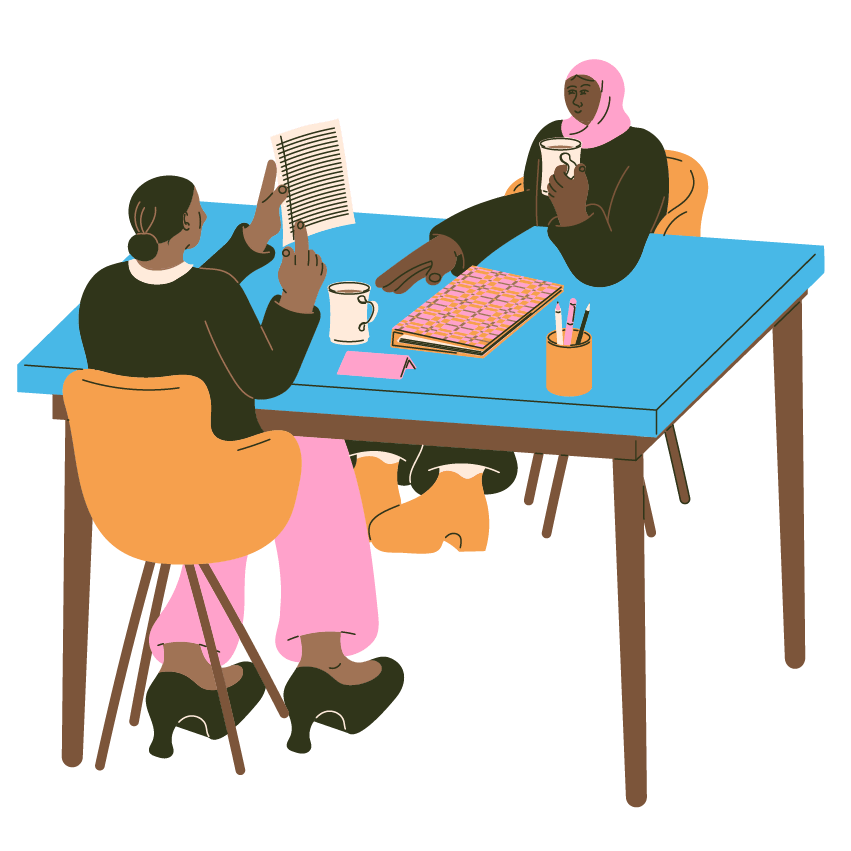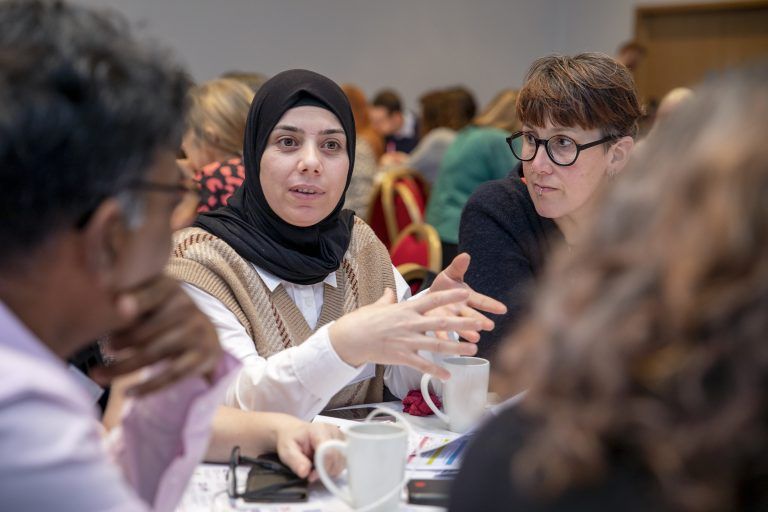The project spread good practice by widening the impact of past and present projects developed by the West of Scotland Regional Equality Council and to use this opportunity to specifically work with refugee communities and assist their integration into the wider society. Working across Glasgow city and Renfrewshire, our delivery focused on improving Employment & Welfare opportunities.
Integrated Communities — Employment & Training Support


Our aim was to develop existing and ongoing partnerships with mainstream services providers, professional bodies and employers that support the pathways of our target beneficiaries through provision of training, work placement and advisory services. A key aspect of the approach was to ensure that beneficiaries gain the skills, knowledge, and confidence to respond to appropriate opportunities within a supportive, inclusive environment.
Key Information
Project Partners
Skills Development Scotland, Pachedu
Geographical reach
Glasgow, Renfrewshire
Dates
06/09/2021 – 30/11/2022
Target Groups
Refugees, Young people
Project Type
Spreading good practice
Background
As an established organisation we look to consistently collect data via our delivery and from our experience, surveys and consultations. We have found that there is food, fuel and other poverty that greatly impacts low-income households. Most of this is a result of lack of employment or lack of knowledge of rights and entitlements. The main barriers still being linguistic both written and oral, inequalities faced within mainstream services and discrimination. Over the last few years, we have found most communication is now dealt with online and this is a further disadvantage to those with limited internet access. Digital exclusion can lead to an array of difficulties in applying for jobs, financial rights, and entitlements.
There is an ongoing need for interventions such as our delivery which will equip individuals with information and support available to them via raising awareness of their financial rights and entitlements. It will also increase their confidence to be able to effectively enter employability pathways for longer term impact to their lives, their children and future generation.
Involvement of New Scots in project
The project engaged with many jobcentres, community centres, and faith groups to deliver project services to participants. The regular attendance at team meetings, gathering data, monitoring, risk management and supervision of progress, including partnership working and referrals in place to deliver project services effectively. Bilingual staff were hired to provide one-to-one support to Arabic, Persian, Urdu, and Punjabi refugee communities. Ongoing project marketing on social media and weekly newsletter raised awareness concerning employability opportunity and capacity building training. The project managed to deliver outcomes successfully, although some of them did not manage to achieve the targeted numbers due to restricted availability of resources such as digital devices, language barriers and poor attendance to the sessions.
The project manged to deliver Modern apprenticeships information sessions to raise awareness within the young individuals that opened another career pathway for young migrants to progress into employment.
Services users received support to access vocational courses such as SIA badge course, Forklift training, First bus traineeship and CSCS course. It helped migrants to improve financial situation within taking positive step towards employment.
Impact
Here is a breakdown of our key achievements:
- Our project raised awareness among 3834 individuals on employment opportunities through, social media posts and weekly WSREC Newsletters.
- Provided advice and information surgeries that benefited 120 individuals by raising awareness on housing, welfare, and debt.
- Ran monthly IT/digital workshops on MS office package and basic use of digital devices that reduced the social isolation of 27 individuals and enhanced their connectivity within digital world.
- 43 individuals attended in-house basic employability vocabulary course and 12 participants have been referred to ESOL provider for further ESOL support.
- 7 individuals attended an 8-week SQA Employability Award course with accreditation at level 3 and 4.
- Our project delivered 3 Modern Apprenticeships awareness sessions and 15 young individuals were informed of modern apprenticeships opportunities.
- 3 employers were engaged to bridge the gap between new migrants and for employment opportunities.
- The project has mentored 4 highly skilled refugees to help them gain SCQF levels in Management, IT and Geology. They successfully engaged with the employers to seek employment.
- 42 individuals were trained in CV development, interview skills, job search and how to write a cover letter.
- 6 individuals were up-skilled through volunteering placements.
- Soft skills training provided knowledge to 55 individuals on writing CV, preparing for the Interview, and filling application form.

Challenges encountered
The first challenge that project faced in the early stage, was delayed funding approval. Secondly, we found individuals’ engagement within the project services during the COVID-19 restrictions was less than we expected.
Delivery of the modern apprenticeships’ sessions were challenging, participants agreed to attend but on the day of the sessions did not turn up and in this situation, it was difficult to engage with the employers.
COVID-19 restrictions constrained the delivery of digital training/sessions. The project found it challenging to deliver digital sessions online and commitment of the participants.
Solutions
To widen the project services, our project managed to work in partnership within Govan, Partick, Springburn, Glasgow city central job centres and Queens Cross Housing Association to provide Employability and digital support to their clients.
How the project has expanded on existing examples of good practice
The project delivered soft skills training, one – to – one support and financial advice online by using digital platform. Despite COVID – 19 restrictions, the project managed to reach individuals and delivered project outcomes.
The difficulties of taking on a new approach
As project worked with new migrants and refugees, they had limited resources of digital devices, access to internet, language barrier and a lack of ability and skills to create, evaluate, learn, and find information on online media and digital platforms through the usage of technology.
Reflections
It is necessary to adapt to changing circumstances and working around the availability of the participants is necessary for the project’s success.
The lasting impact after the funding will be the Basic Employability vocabulary course because participants are still coming to our services to gain English courses. To approach this matter, WSREC referred the clients to another project to get English language support. In terms of employability support, WSREC will continue to support people using new funding. There is a need in the community to have continued support especially for refugees and new migrants.
Further information
We developed project resources at the beginning of the project delivery including: project marketing leaflets and newsletters.
We would also like to flag the effectiveness of partnership working with Govan, Partick, Springburn and Glasgow City Central job centres, Queens cross housing association and Skills Development Scotland in the successful delivery of the project.


